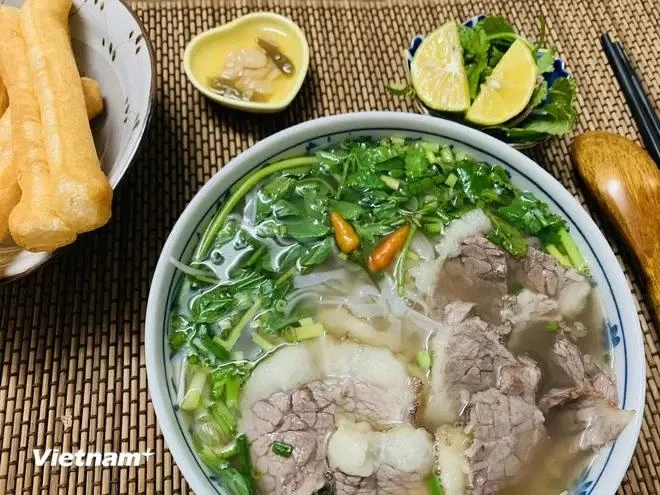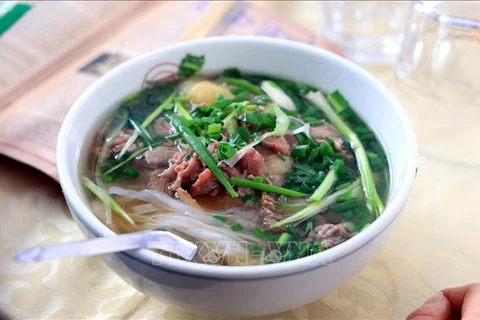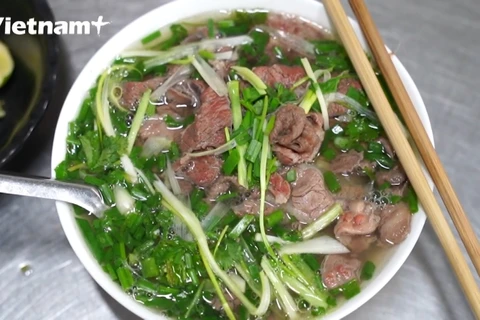
Hanoi (VNA) – “Pho” (Noodle soup) of Hanoi capital city and the northern province of Nam Dinh has been named in the national intangible cultural heritage list by the Ministry of Culture, Sports and Tourism.
There are many explainations of Pho’s origin. Some say it started as a variation on pot-au-feu, a French beef stew dish. Others believe it’s the heir to a Chinese beef noodle soup or to a traditional Vietnamese dish of noodles with buffalo meat. What is certain is that “pho”, a simple yet deceptively complex dish of noodles served with beef or chicken in a hot bowl of broth, has become Vietnam’s pride on the world map of cuisine.
Though its origins are disputed, historians believe “pho” was first made popular in Hanoi and Nam Dinh, two major northern cities, during the French colonial period. “Pho” wasn’t invented in a restaurant. It began life on the side of the road, on the shoulders of street vendors who wandered the city with a big pot of both, always kept hot and ready with their mobile stoves. It was reinvented many times by vendors and home cooks with ingredients that were available to even the poorest, and it was shaped by the country’s turbulent history.
The two types of “pho” have been categorised under the domain of folk knowledge, meeting the criteria of representation of community and local identity, reflection of cultural diversity and human creativity passed down through generations, possibility of revival and long-term existence, and the local community's consensus, voluntary nomination, and commitment to safeguarding.
Hanoi currently has nearly 700 “Pho” restaurants across 30 districts, mostly in Hoan Kiem, Ba Dinh, Cau Giay, Dong Da, Thanh Xuan, Hai Ba Trung and Long Bien.
Meanwhile, Nam Dinh currently houses around 300 restaurants of this dish, with Van Cu, Giao Cu, and Tay Lac villages in Dong Son commune, Nam Truc district considered the homeland of Nam Dinh-style “pho”./.






















